
We kindly inform you that, as long as the subject affiliation of our 300.000+ articles is in progress, you might get unsufficient or no results on your third level or second level search. In this case, please broaden your search criteria.

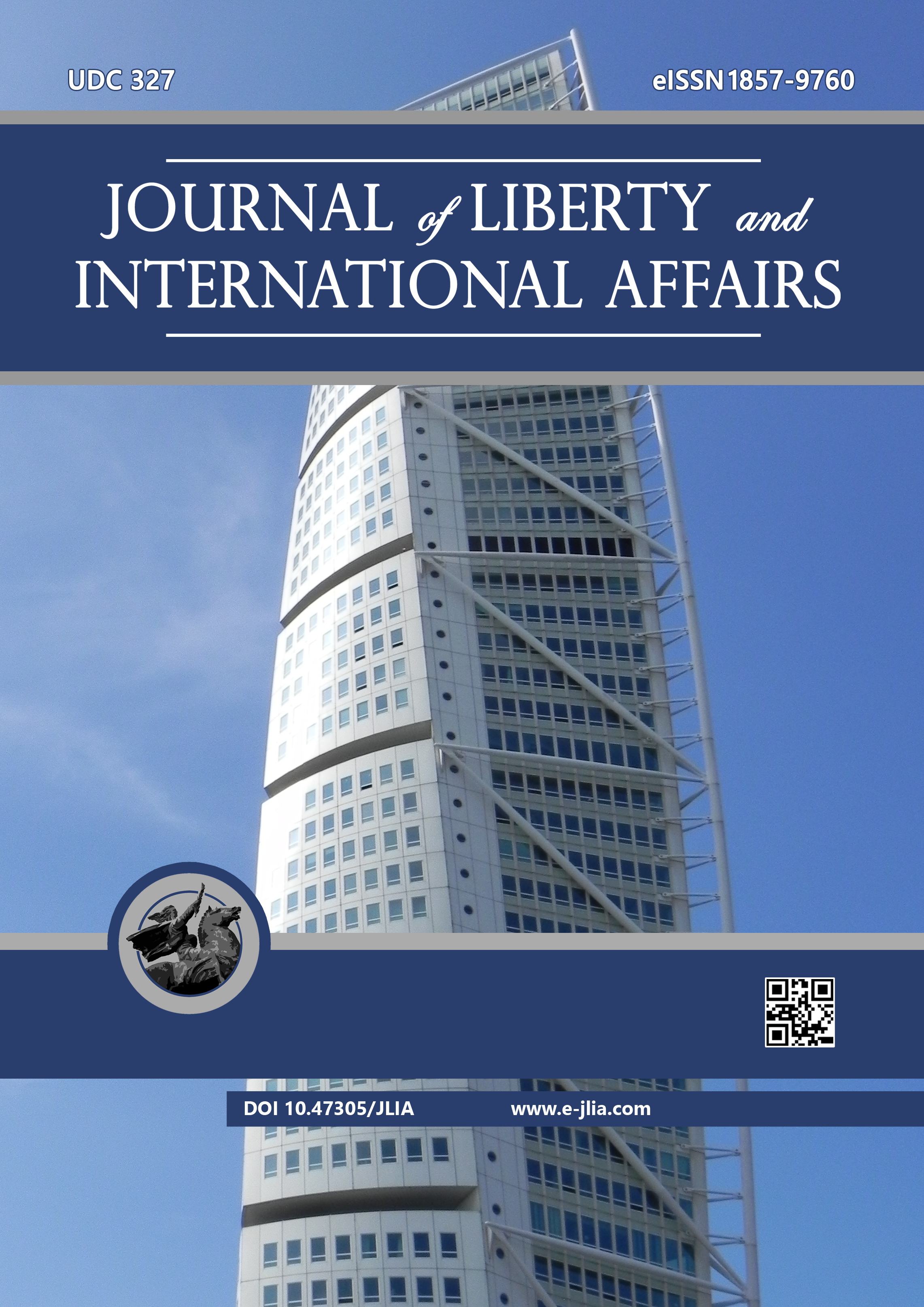
This paper examined the factors that influenced the Gross Domestic Product growth (GDP) in the post-Covid-19 period in Kosovo. This paper explored the impact of consumption, remittances, exports, imports, and inflation on Kosovo's GDP growth using fixed effects regression analysis with data from various secondary sources to analyze their impact from Kosovo's perspective. The results demonstrated that consumption, remittances, and exports had a statistically significant influence on GDP growth during the post-pandemic economic lockdown stage, whereby imports and inflation had a little inverse relation. Further, the Hausman test statistics on the adequacy of the fixed-effect model selection represent a superior performance compared to the random effect model. The paper is the first that extensively explores the impact of these factors that drove GDP growth in the post-pandemic period in Kosovo's economy. The novelty of this paper is that it recognizes the response of governments to the pandemic and accurately identifies the macroeconomic factors that influenced GDP growth.
More...
Conserving cultural heritage and archaeological sites have become a serious national concern in the Middle East for the war-affected countries, including Iraq and Syria. Because looting and violence have caused massive destruction of cultural heritage and archaeological sites, this study aimed to analyze the legal background concerning the protection of cultural heritage and archaeological sites in the context of Iraq and Syria during 2014 with the rise of the Islamic State of Iraq and Syria (ISIS). This study used the content analysis method and cross-country analyses for Iraq and Syria. The study is guided by two main questions: What is the government's legal role in protecting cultural heritage and archaeological sites? Are there any legal authorities in Iraq and Syria to protect cultural heritage and archaeological sites during war and conflict? In the end, this paper suggests that protecting cultural heritage is the legal responsibility of government which is supposed to be enforced in the legal foundation of the state as a national sovereign power.
More...
This paper aims to give a greater perspective to the study of an institution that even today presents complex situations because the usucapion or acquisitive prescription works as a kind of consolidation of a right, provided that a possessor has been for a certain period of time. Each legal system establishes the point of equilibrium between the interests confronted in a usucapion case based on certain elements, therefore it is useful to analyze the Roman legal experience as a scientific foundation of this complex institution that constitutes one of the great themes of the law of things.
More...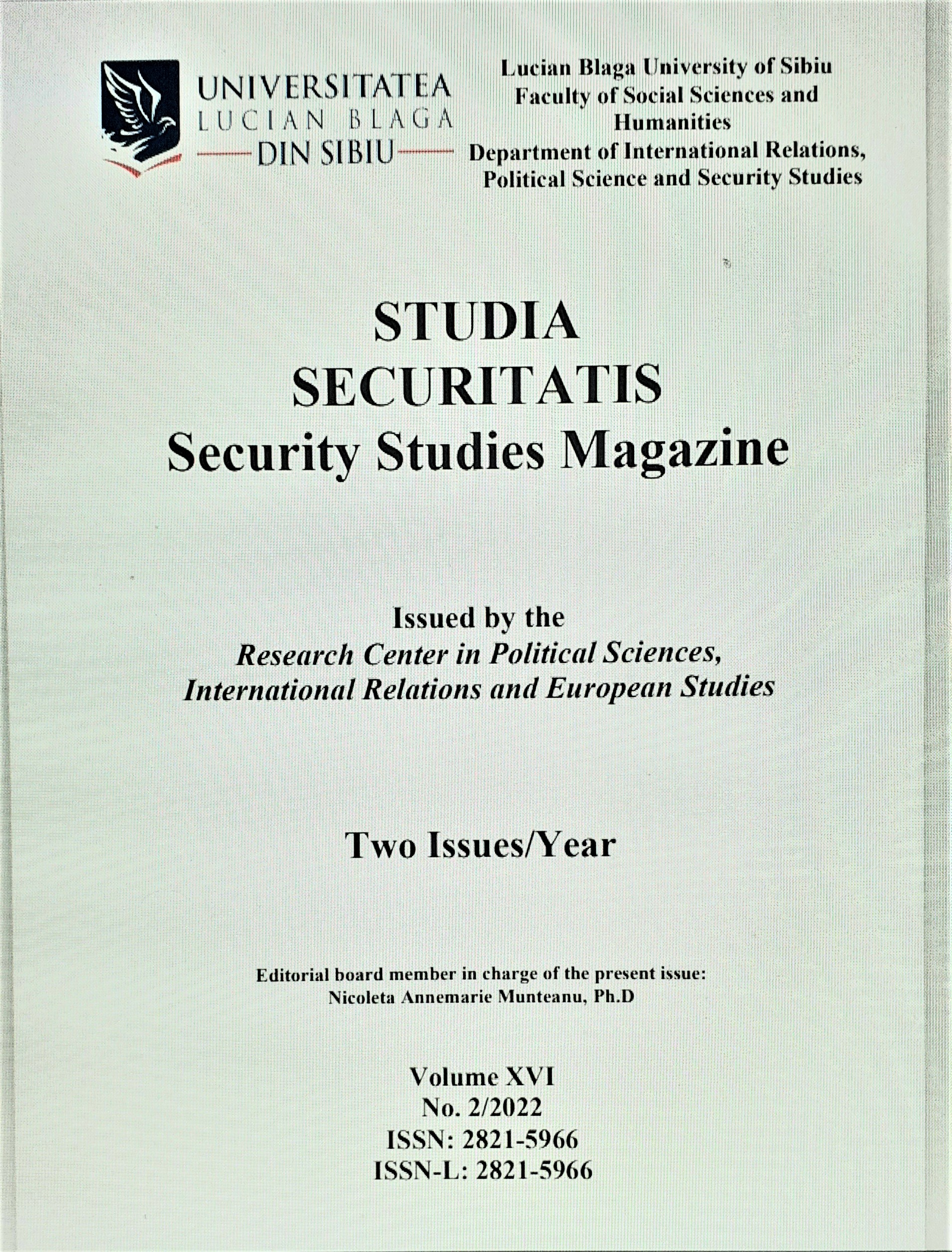
The practice of human trafficking is not only a serious legal and social issue but a major violation of human rights, an attempt to reduce the value of humanity and to treat humans as objects. The National Agency against Trafficking in Person reports describe a tendency of decreased numbers of Romanian victims identified in the last decade by the judicial institutions. The complexity of this criminal phenomenon requires the promotion of a systemic approach and a comprehensive and coordinated involvement of every public institution and authority, nongovernmental organizations, and specialists with competencies in the field of preventing and fighting human trafficking and in providing all forms of assistance services for social reinsertion.We are analyzing if Romanian law has adequate provisions regarding human trafficking victims` rights, in line with international regulation. We are discussing the good practices and the challenges raised by the implementation of the legal victims` rights, also drawing some suggestions for improving the administrative process of institutional cooperation.
More...
Human trafficking, one of the worst violations of human rights, dignity, and integrity, usually takes place over a large territory, where traffickers take advantage of the naivety and vulnerability of victims. Traffickers also exploit a lack of synchronization between state institutions with the responsibility of preventing and combatting this phenomenon. Considering the pandemic and digitalization have directly contributed to the evolution of human trafficking, the paper aims to present the risk factors, threats to public order, and public safety caused by human trafficking. The fundamental nature of human trafficking is dehumanization for profit, which is the distinguishing factor from other criminal activities. The paper also presents the European and Romanian legal frameworks which organize the fight against, prevention, and prosecution of this transnational crime.
More...
The importance of the increasing role of Community law is given by the implications for the legal systems of the Member States of the European Union. The European Community has evolved over the course of its history into a multi-state structure with an autonomously manifest legal order, with a system of law binding on each Member State and quasi-uniformly ‘adopted’ by the member states of the European Community. The relationship between Community law and national law can be quantified as follows:1.the prioritization of the competencies of Community law in relation to those of the national law, which implies a transfer of competencies to the European Union; this transfer can be total, as is the case of the customs tariff, or partial, a situation in which there is no need for a relationship between them; 2. the alignment of the legislative provisions of the national law with Community law; 3. the reconciliation of the consequences of the legal rules making up the two legal systems; 4. the concomitance of Community law with the national law, i.e., where Community law guides the application of national rules, as in the case of competition law.
More...
The desiderata implemented in forensics at the time of its birth as a special legal science, the knowledge gained during its development and its subject matter, overall determine the possibility of using forensic means, methods, and procedures in judicial and extrajudicial activities. This scientific paper describes the possibility of using the forensic arsenal not only in a criminal trial, but also in the context of other law enforcement actions, including in the field of civil law relations. In this regard, the methods of using forensic knowledge in civil and contravention processes are described, ensuring the economic and information security of the enterprise, establishing psychological contact in interviews, emphasizing the significant role of forensics in preventing and combating illegal acts. The author also highlighted some causes that prevent the use, outside the criminal process, of the opportunities offered by forensic.
More...
Public order and security of any state become the field that transposes the obligations of the status, or, namely in the process of their maintaining, ensuring, and restoring, the entire spectrum of competencies and activities that interfere with human rights is reflected. At the same time, the protection of human rights and freedoms in the context of public order and safety has always been and continues to be a permanent concern of the international community, an aspect that should not be neglected by positioning the interest of the state as a priority over the interests of the individual or of the community.
More...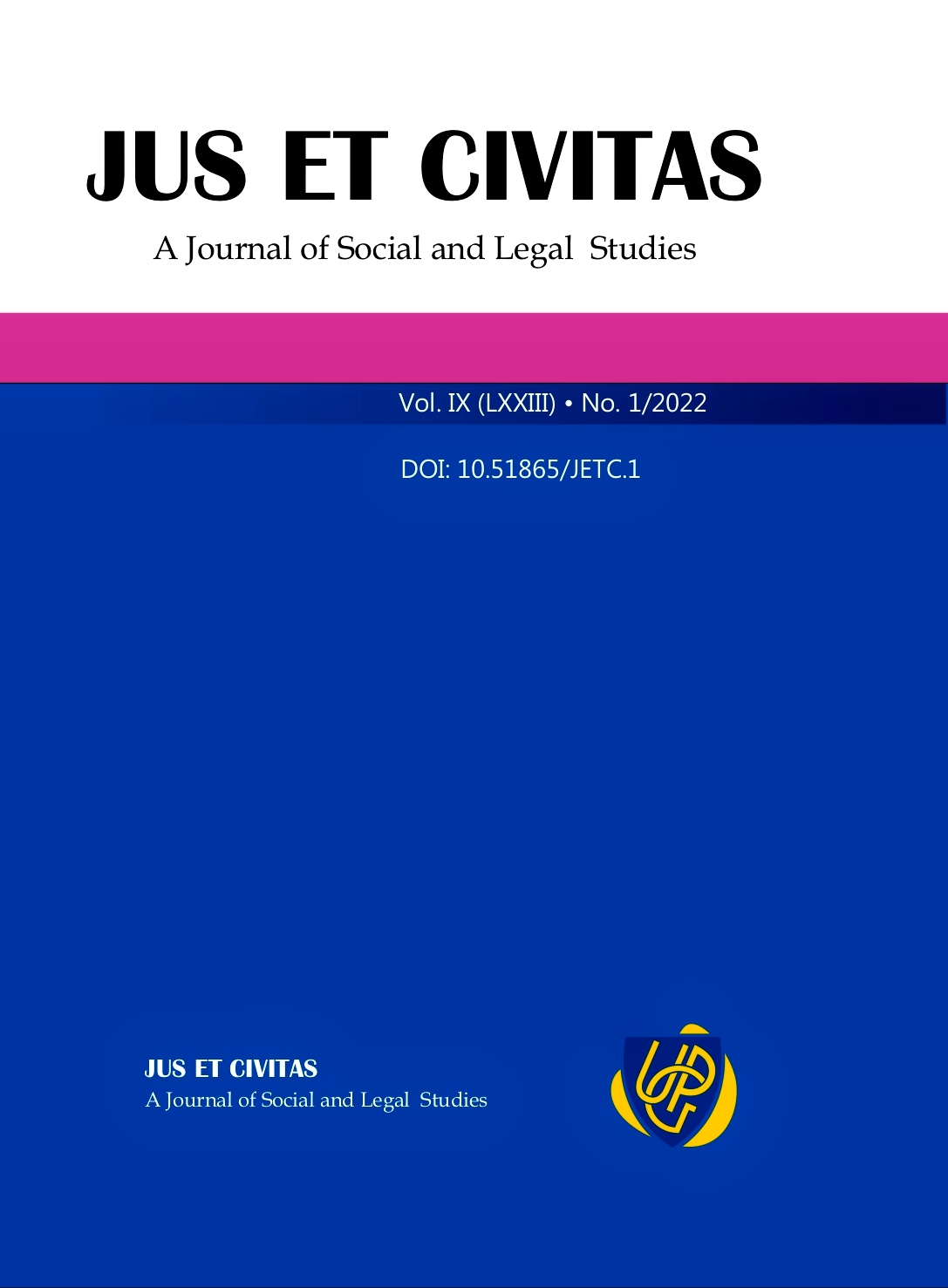
The administrative capacity of public authorities and bodies, as well as of the institutions under their subordination/in their coordination, includes, not only all material, institutional and human resources, but also the actions they carry out for the exercise of the competencies established by law. In the context of the COVID-19 pandemic, the Minister of Education together with the Minister of Health issued Joint Order no. 5558/2389/2021 which provided that, starting with 8 November 2021, the resumption of courses with physical presence is to take place in all pre-university education units in which a minimum percentage of 60% of the staff is vaccinated, otherwise the resumption of courses will be done online, and the Boards of Directors of the pre-university education units issue the decision on how to resume the courses. Therefore, this study will analyse, in the light of data protection legislation, if, in view of the competencies established by law, the pre-university education units had the necessary administrative capacity to issue an informed decision on how to resume the courses. The main conclusion after analysing the legal framework is that the legitimate basis for personal data processing concerning the staff vaccination status can only be point (c) of Article 6 (1) and point (g) of Article 9 (2) of Regulation (EU) 2016/679, but the Joint Order no. 5558/2389/2021 does not fall into either of these two legal basis for the processing, with the consequence that the Boards of Directors were in fact deprived of the necessary administrative capacity to issue the decision on how to resume the courses.
More...
Internationally, human rights law guarantees a universal right to education. Education and training of inmates help reduce the social costs of crime. People outside of the prison environment have the luxury, or better yet freedom, of choosing the reason for pursuing a form of education or training, whilst for prisoners it is predetermined. Given that its final scope is the reintegration of prisoners into society as full functioning citizens, the right to education becomes an obligation to the state to guarantee the access to the resources available. Thus, the complexity of this right can be better seen in the prison environment, as its final purpose is to ensure that discipline and order are maintained in society.
More...
Small and medium-sized enterprises (SMEs) have succeeded in being the main and dynamic pillar of national and international economies. Education and work experience is essential in increasing SMEs’ efficiency and competitiveness. The changing business environment has created fierce competitiveness among SMEs, requiring active interaction between managers/owners and stakeholders. As a result, this study aims to explore the influence of education, experience, using a business plan, and barriers on the success of small and medium-sized businesses. This research employed an online questionnaire for scientific research. Through ordered logistic modeling, we observed 336 answers from businesses using the qualitative approach. The study’s findings reveal that education and work experience have a statistically favorable influence on the performance of SMEs, whereas barriers have a substantial adverse influence. Findings on barriers are noteworthy in the context of this study since the governing institutions throughout the pandemic and later situations experimented with the measures adopted. The study also benefits SMEs and legislation authorities in understanding the critical concerns that are perceived as barriers to the growth and expansion of SMEs, resulting in the creation of even more sophisticated infrastructures to support sustainable development.
More...
In a historical and dogmatic examination (unconventional and, therefore, subjectively risky but objectively necessary) the federal form of government (we use both the expression ‘form of government’ and the category ‘federal’ in their general meanings) shows, first of all, a relevant and possibly surprising characteristic, from which a number of other features are derived. This ‘characteristic’ is to be: not a ‘special’ form of government (which the late eighteenth-century neologism [1787] „federalism“ suggests), but ‘tout court’, the republican form of government, which is an alternative to the royal form of government; that is, as it was written in the middle of the Age of Enlightenment: the „only form of government which is an alternative to the power of only one“. Indeed, Montesquieu (EdL, 1748, 9.1; expressing, moreover, a shared thought) states: „It is, therefore, very probable that mankind would have been, at length, obliged to live constantly under the government of a single person, had they not contrived a kind of constitution that has all the internal advantages of a republican, together with the external force of a monarchical, government. I mean a federal republic“. It is difficult to find a better definition of the great Republic, i.e. the Roman imperial Republic: organized in cities (each with its own assembly of citizens: comitium) and groups of cities, the provinces (each with its own assembly of cities: concilium provinciale). We must resume both, scientific reflection and political initiative on the „federal republic“ as the only possible form of republic, whose model is the Roman imperial res publica.
More...
Viewed as „strangers“, the peregrini constituted the majority of Rome’s population. Although they did not have roman citizenship, still the peregrini benefited from specific rights. The main points of interests in the article are to examine the legal status of these people under ius gentium and to explore how this status differed from Roman citizenship. Lastly the study will try to give a classification of the distinct types of peregrini.
More...
The Roman army was one of the most effective institutions of Ancient Rome. The Eternal City conquered and globalized the world through its soldiers. Dacia, as a future province of Rome, was no exception to colonization, so Dacia capta est. Therefore, the Roman model was also implemented in this territory, the army contributing in a direct way to the colonization of the people from the North of the Danube.
More...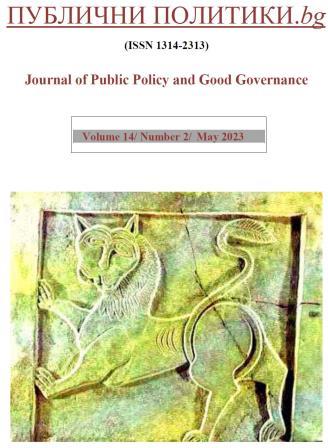
The publication presents the papers from the Ninth International Scientific Conference “Re-new EU -- Recovery, Reopening and Revival”, organised by the European Studies Department of Sofia University “St. Kliment Ohridski” with the kind support of Hanns Seidel Foundation and Wilfried Martens Centre for European Studies that took place in Sofia on 13-14 October 2022.
More...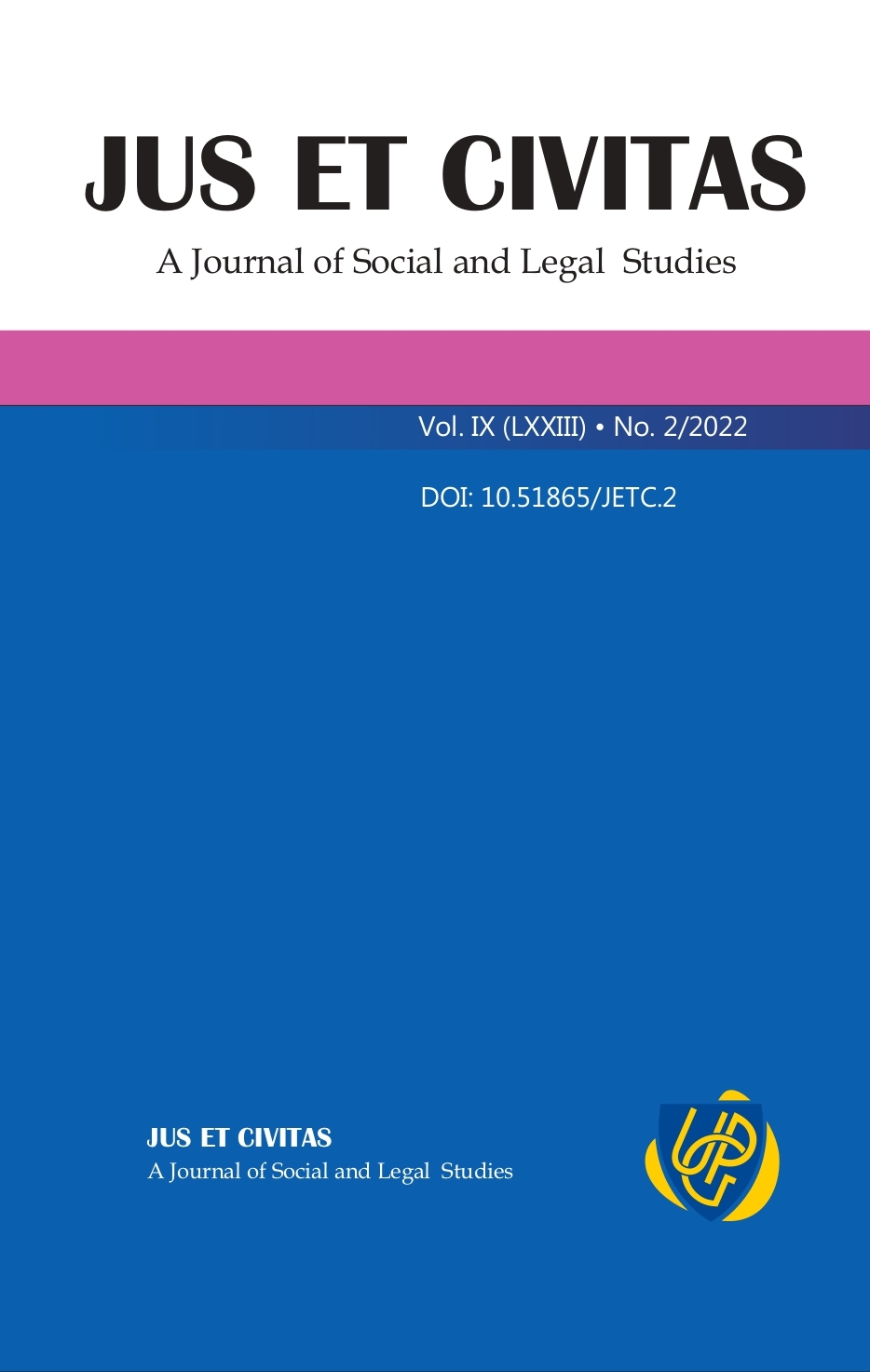
In the paper we propose to analyze both from the point of view of the legal provisions in force, but also from the educational point of view, the cognitive situation of children in the face of exposure to applications such as those with a wide audience dedicated to socialization. Among the social interaction tools widely used by young people and children, we have chosen the TikTok application, as an illustration of the ways of legal and educational regulation with the aim of protecting the cognitive integrity of children. In the absence of effective legal actions and educational interventions by the decision-makers regarding children's development, in our opinion, the cognitive autonomy of children is seriously affected. At the same time, we present sufficient legal and educational ways to preserve the academic well-being of children.
More...
Many studies have concluded that corruption hinders economic expansion by threatening the viability of the public budget and reducing the capital available for infrastructure development and social welfare. Thereby cultivating social inequality and eroding trust in the state and institutions. In recent decades, the European Union (EU) and India have experienced multiple corruption cases, including bribery, embezzlement, and abuse of power. Consequently, some EU nations and India have attempted to implement legislations and frameworks to curtail corrupt practices. The impact of adopted approaches can be witnessed in the contrasting scores and ranks of both regions on the Corruption Perception Index. Therefore, considering the distinctiveness in the efficacy of the approaches adopted by both of these regions, this paper intends to explore the efficacy and limitations of anti-corruption initiatives and frameworks implemented in the EU region and, subsequently, recommend the adoption of a similar approach which may prove to be beneficial in addressing the pressing issues of political and bureaucratic corruption in India.
More...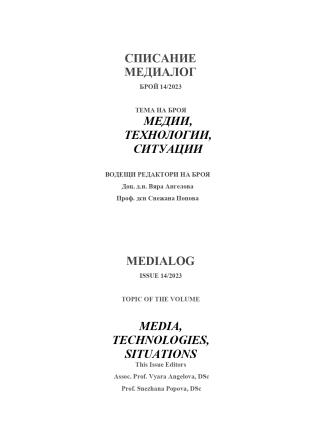
Radio is the oldest electronic media that is the first to reflect technological leaps in the media world. At the end of 2022, the technology based on artificial intelligence makes a qualitative leap and perceptibly enters all spheres of social and cultural life. This is also the period in which artificial intelligence begins to create individual broadcasts and later - entire radio programs. The potential of this new technology to replace the human factor is substantial. This research focuses on the future of radio and the impact of AI technology on radio producing.
More...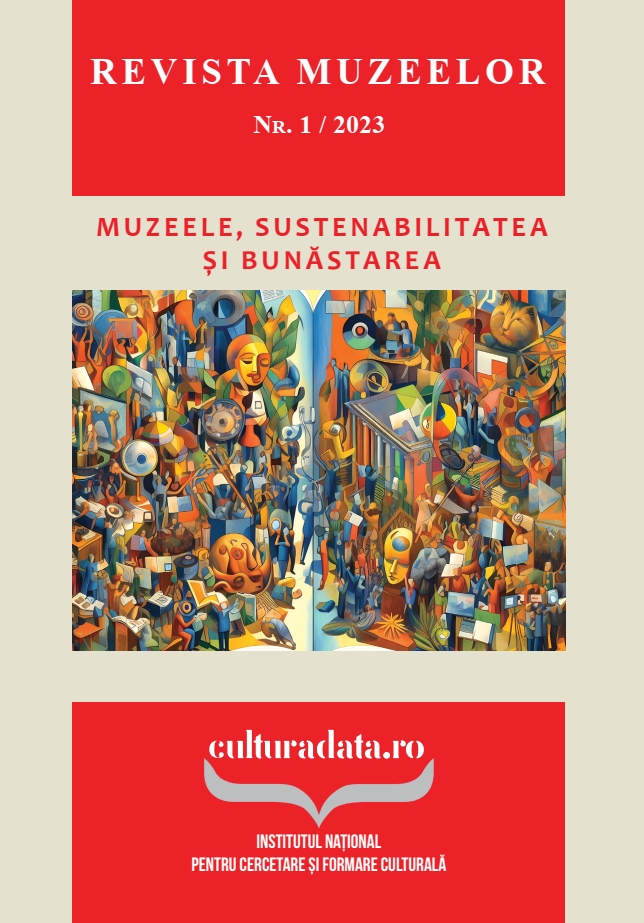
The paper presents a new regulation issued in Romania, in April 2023, regarding the Status of the professional cultural worker, following the E.U. and UNESCO recommendations on the matter of the precarity of artists and cultural workers activity; although not all the UNESCO recommendations are observed by the Romanian regulation, it represents a first step in supporting the independent cultural sector, namely professionals outside the „employee” legal framework, based on a regular „work contract”, offering tax reductions, right of fee negotiations and recognition of work experience. The paper also analyses the international recommendations in force, current national regulations on the status of the artist and the cultural worker, as well as data from recent research on the subject. A special section of the article refers to the present situation of specific occupations in the field of cultural heritage in Romania, indicating the potentially low impact of the new regulation in this particular sector, due to the current national institutional and legal context that favours the regular „work contract”.
More...